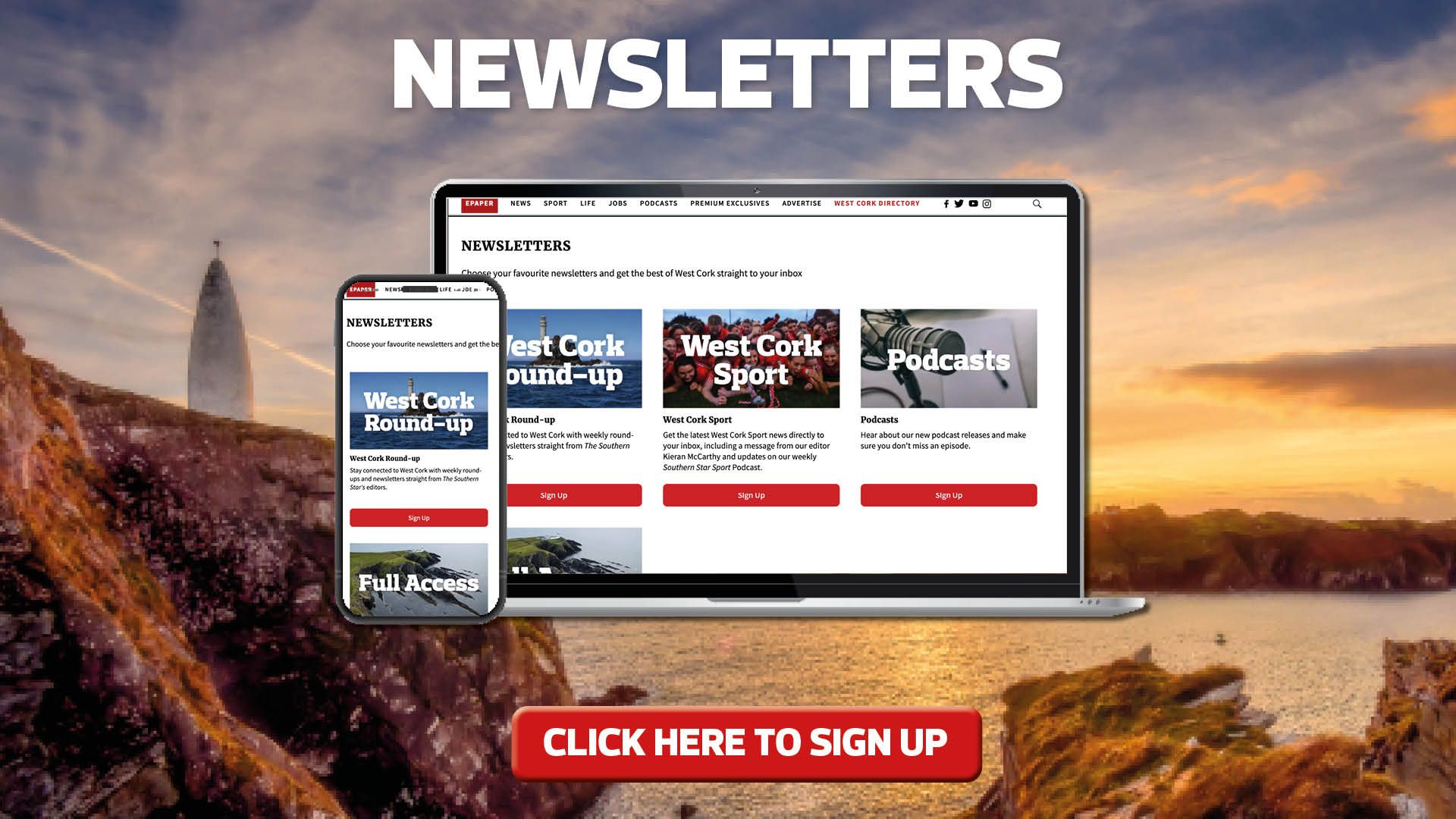‘Cork, and in particular West Cork, is arguably more exposed to Brexit than many other parts of the country, mainly because of the industries that actually provide employment down here
‘CORK, and in particular West Cork, is arguably more exposed to Brexit than many other parts of the country, mainly because of the industries that actually provide employment down here; the food industry, agriculture, fishing and farming, tourism.’
This was the stark warning from Tánaiste and Minister for Foreign Affairs, Simon Coveney, at a breakfast briefing on Brexit, organised by the Cork South West Fine Gael Executive at the Celtic Ross Hotel in Rosscarbery.
He explained that ‘A lot of the public focus on Brexit to date has been on the border, north-south, because it’s a very emotive issue, because it’s linked to a peace process and because it’s linked to the current phase of discussions, which really have been about a Withdrawal Agreement and not yet about the future relationship, which is about future trade.
‘That doesn’t mean that we are not focused on the east-west relationship as well as the north-south relationship. Of course we are,’ he emphasised.
‘Just to give you a sense of how significant this is for Ireland, there’s about 38,000 companies in Ireland who trade with England every single week and every single month. That’s about 200,000 jobs.
‘The east-west trade relationship is worth about €65bn a year. That’s about €1.3bn or €1.4bn every single week and much of that trade actually is linked to businesses here is West Cork,’ said the Tánaiste.
‘Cattle prices, dairy prices, sheep and lamb prices, the price of fish are all very much linked to Ireland’s access to a huge market in our closest neighbour – a market that actually has been opened up in a seamless way since we created a functioning Single Market of the European Union.’
Mr Coveney added that ‘that trade, in many ways, has been taken for granted over the last couple of decades because nobody ever envisaged that Britain would decide to leave that platform for trade, whatever about the political institutions of the European Union, which I think Britain has always had a fractious enough relationship with.’
The Tánaiste said ‘we have been planning for how we can protect Irish interests, how we can protect beef prices that we are reliant on selling very large volumes of beef to the British market and also a whole bunch of dairy products as well.’
He outlined the various stages of the Brexit negotiations, saying that, between now and next October, they will be finalising details of the Withdrawal Agreement, but the framework for the future trading relationship won’t be agreed by then, predicting that the detail will take at least two years and maybe a lot longer.
By way of re-assurance in the meantime, Mr Coveney said that, for West Cork businesses, there is now ‘a strong likelihood’ that trading rules are not going to change between now and the end of 2020 at least. However, he described the current approach of the British government as ‘concerning’ and expressed the hope that its stance may change.
‘I am very conscious of the responsibilities I have,’ he stated, adding that it was ‘all about incremental improvements during negotiations … a lot of good things have been bagged and banked.’
While the Irish government is opening new embassies abroad, seeking to find more markets for our produce and goods, the Tánaiste acknowledged that ‘Britain will always be the most important market for us for food’ and that ‘West Cork is uniquely exposed to the potential downside of Brexit.’
He also pointed out that there is ‘a job to do to protect the next round of CAP.’
Despite the huge scale of the challenges posed by Brexit, Mr Coveney finished his presentation on an upbeat note: ‘We need to not flinch,’ he declared. ‘Brexit is a big deal – a big threat – but we can get through it.’
DURING the course of a question and answer session after his presentation, Tánaiste Simon Coveney assured fishermen present at the Brexit briefing in Rosscarbery that ‘for almost two years after Britain leaving (end of March 2019), all rules and regulations remain, including the Common Fisheries Policy.’
He said that 30% of our mackerel is caught off the coast of Scotland, however Donal Kelly, managing director of Fast Fish Ltd in Castletownbere, warned that if British waters are closed to fishermen from other countries, including Ireland, Belgium, Denmark and the Netherlands, after Brexit, the only place they will have to go fishing is off the west coast of Ireland, thus threatening the livelihoods of Irish fishermen and those involved in the industry here.
Some 70% of Irish fish is sold into the British market and the Tánaiste acknowledged that the fisheries question is a ‘very emotive issue.’
